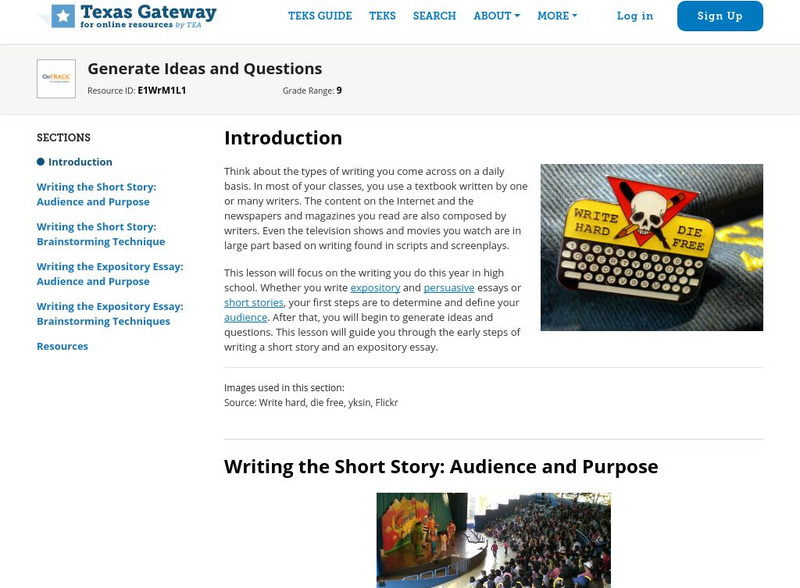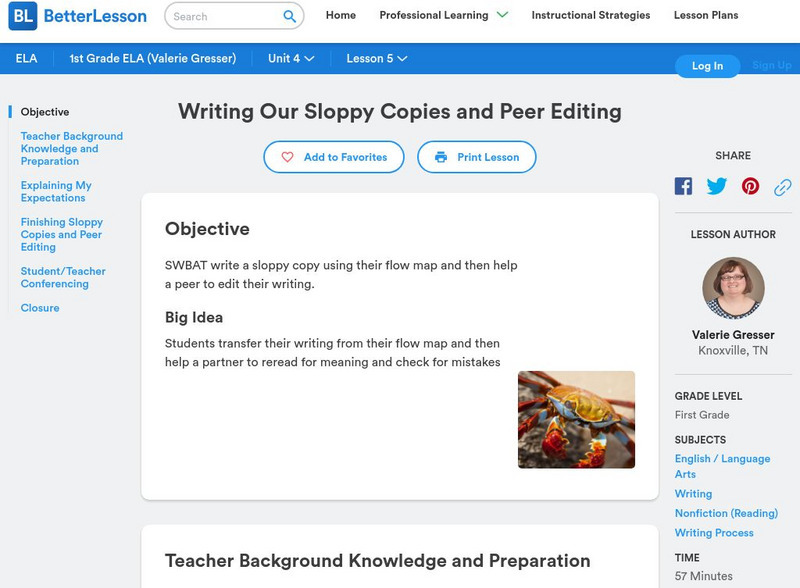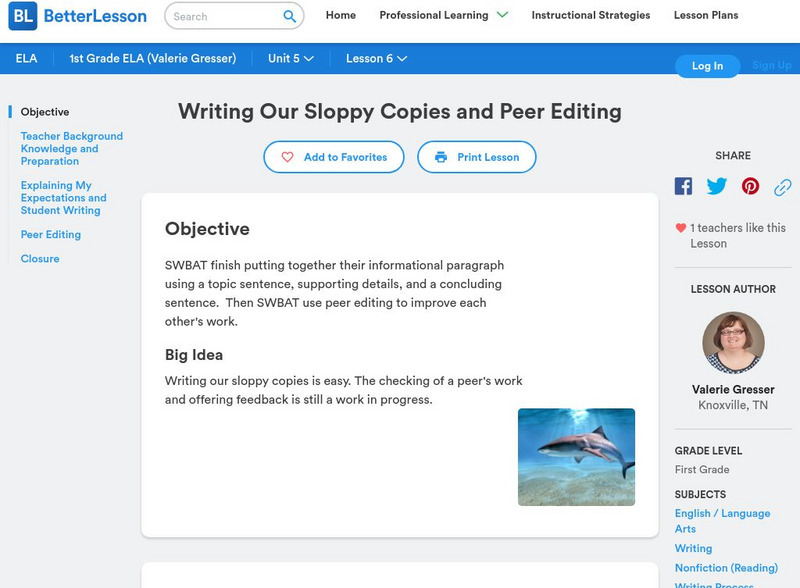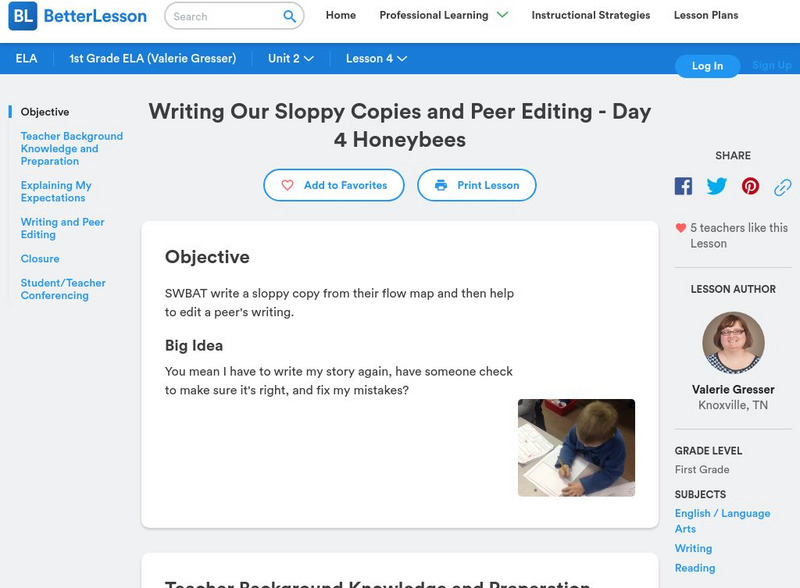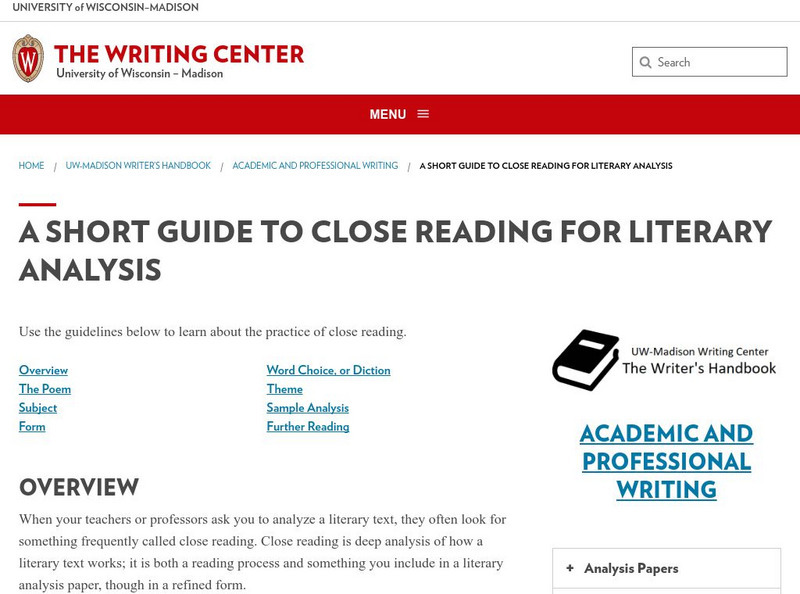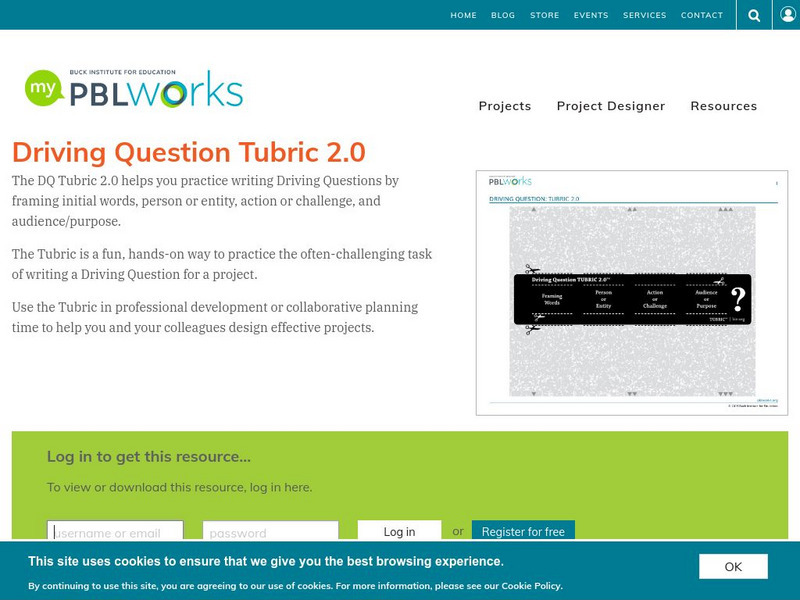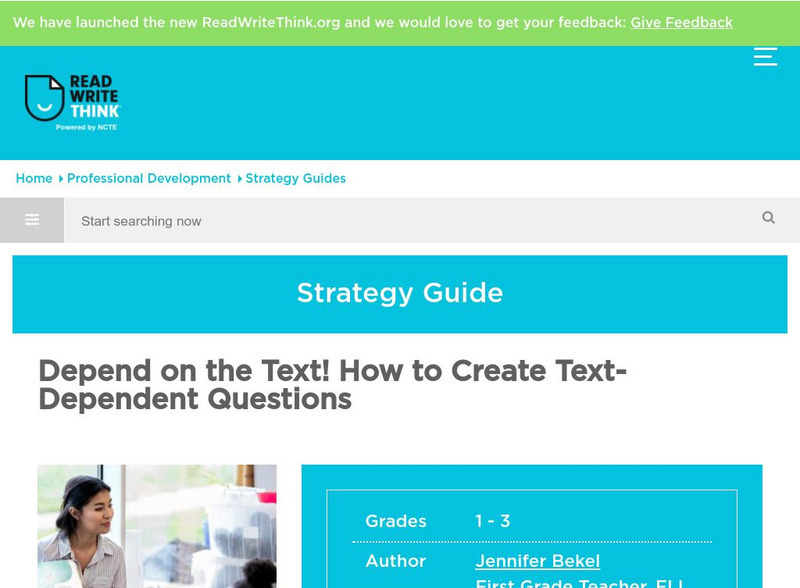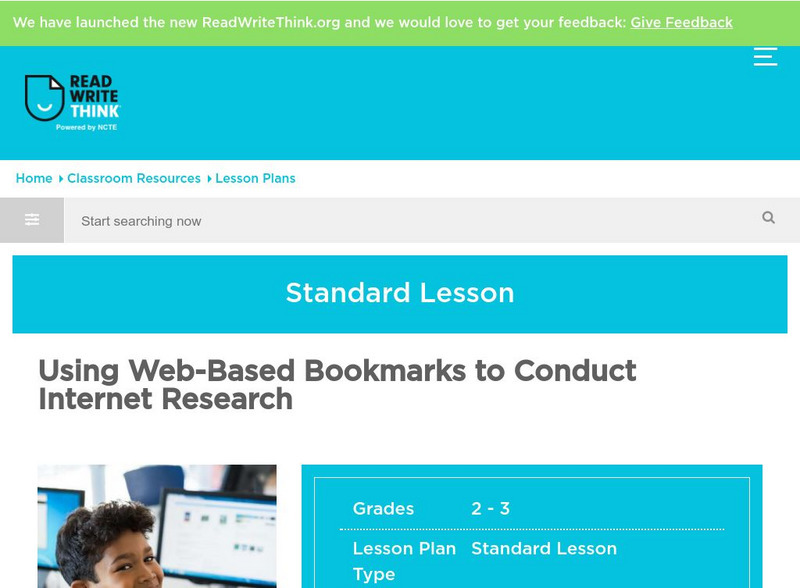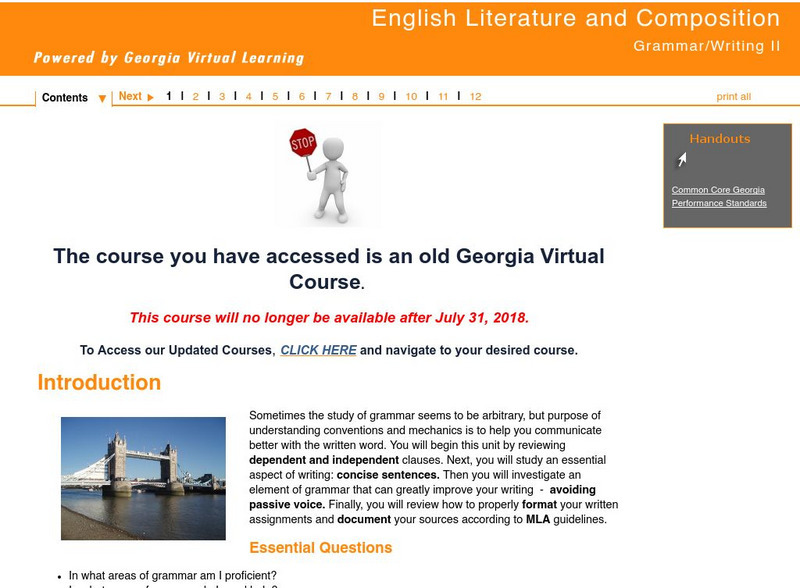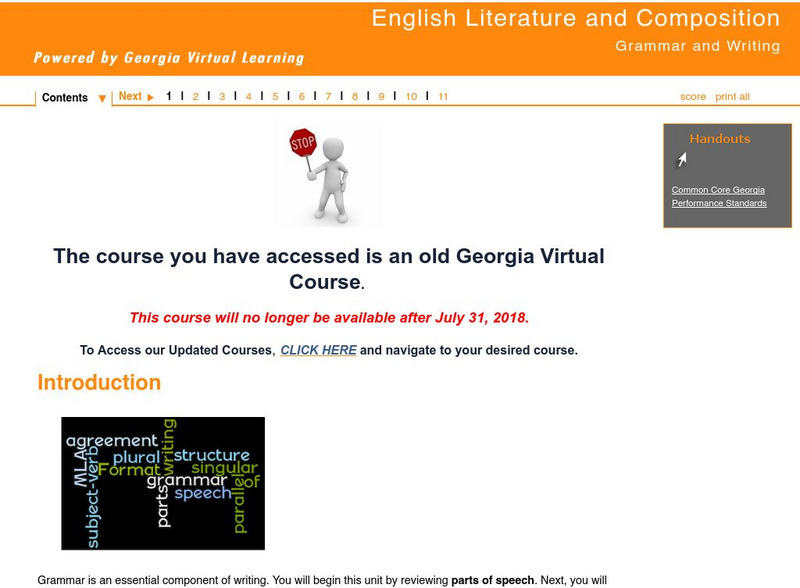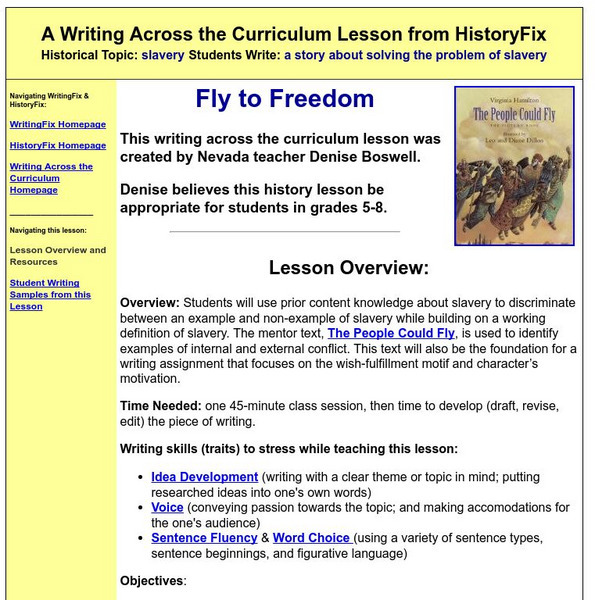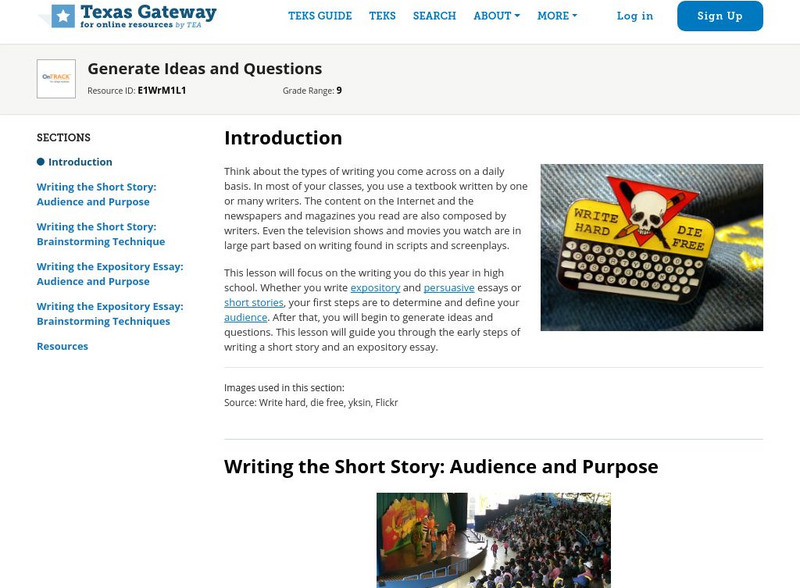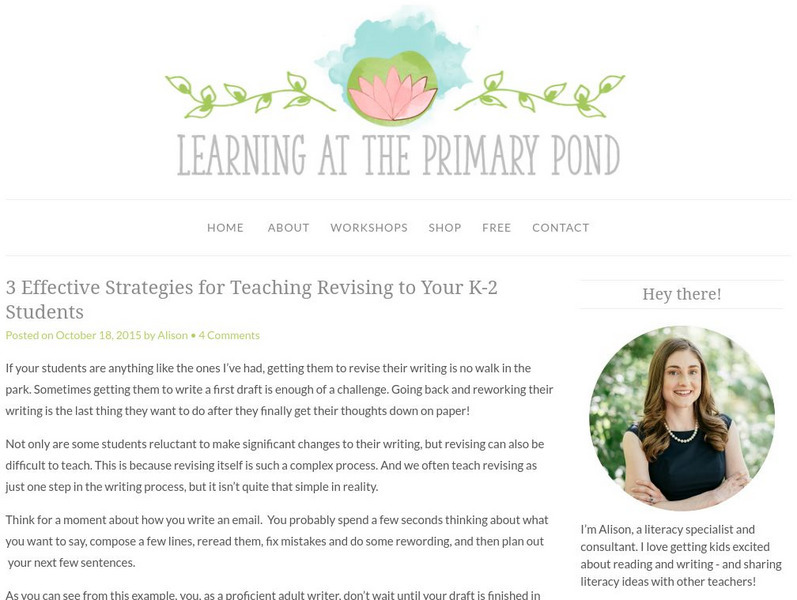Hi, what do you want to do?
EngageNY
TASC Transition Curriculum: Workshop 8
Lights, camera, action! Math educators consider how to improve their instruction by examining a model of the five-practice problem-solving model involving a movie theater. Participants examine cognitive demand in relation to problem...
EngageNY
TASC Transition Curriculum: Workshop 6
Is a college education necessary for success in today's world? The class investigates the question, along with others at the end of the sixth workshop in a 15-part series. The lesson has four parts with multiple activities and...
New York State Education Department
TASC Transition Curriculum: Workshop 5
Are video games sports? Pupils investigate this question as well as various nonfiction selections to learn more about claims and the support that defines them. All of the selections mimic the rigor on state tests and encourage close...
New York State Education Department
TASC Transition Curriculum: Workshop 4
Why is it important to use precise language? Participants explore this question in the fourth activity in a series of 15 on effective instruction. Perfect for all content areas, the activity promotes appropriate language choice through...
EngageNY
TASC Transition Curriculum: Workshop 12
How can opinions slant facts? Workshop participants learn how to examine primary and secondary sources and identify the author's point of view. They also examine how visual art impacts the meaning and rhetoric of sources. Full of...
Sophia Learning
Sophia: Revision Techniques: Using a Professor's Notes
This slideshow lesson focuses on revising using teacher comments. It discusses the advantages of teacher notes on rough drafts, how to use the notes to improve the final, examples from sections of marked student papers, editing and...
Texas Education Agency
Texas Gateway: Generate Ideas and Questions
This lesson focuses on the writing in high school. Whether you write expository and persuasive essays or short stories, your first steps are to determine and define your audience. After that, you will begin to generate ideas and...
Better Lesson
Better Lesson: Writing Our Sloppy Copies and Peer Editing
Students will write a sloppy copy and help a peer to edit their writing. They will use a kid-friendly checklist (included)to help each other find their mistakes. Videos of students engaged in the lesson are provided, along with a...
Better Lesson
Better Lesson: Writing Our Sloppy Copies and Peer Editing
Students will write a sloppy copy and help a peer to edit their writing. They will use a kid-friendly checklist (included)to help each other find their mistakes. Videos of the lesson in action are provided, along with a teacher's grading...
Better Lesson
Better Lesson: Writing Our Sloppy Copies and Peer Editing Day 4 Honeybees
You mean I have to write my story again, have someone check to make sure it's right, and fix my mistakes? In this lesson, students will peer edit each other's writing. They will use their five-star checklists (included) to make sure they...
Sophia Learning
Sophia: Revision Technique: Thesis and Support
This slideshow lesson focuses on assessing and revising the thesis, topic sentences, and supporting details in a paper. It uses the analogy of the body: the thesis and topic sentences are the bones and the supporting details are the...
University of Wisconsin
Univ. Of Wisconsin: Writing Center: Guide to Close Reading for Literary Analysis
This guide discusses how to approach analysis of a literary text, with the main focus being on the poem "Design" by Robert Frost. It explains how to examine the subject, the form, word choice or diction, and the theme. In each section,...
Sophia Learning
Sophia: Research Questions: A Focus for Planning, Researching, and Writing
This Sophia video lesson introduces how to develop good questions for a research paper. CCSS.ELA-Literacy.CCRA.W.8; CCSS.ELA-Literacy.WHST.6-8.7 Conduct short research projects. CCSS.ELA-Literacy.WHST.6-8.7 standards are addressed in...
Buck Institute
Pbl Works: Driving Question Tubric 2.0
[Free Registration/Login Required] The Driving Question Tubric 2.0 helps with practice in writing Driving Questions by framing initial words, person or entity, action or challenge, and audience/purpose. It is a fun, hands-on way to...
Towson University
Towson University: Online Writing Support: Interrogatives
This entry focuses on interrogatives: who, what, when, why, where, which, whom, whose, how. It includes an explanation of their use and examples.
ReadWriteThink
Read Write Think: Depend on the Text! How to Create Text Dependent Questions
This strategy guide focuses on writing text-dependent questions which require the student to reread the text to support their answers. It offers a list of what to do to create these questions that progress from establishing general...
ReadWriteThink
Read Write Think: Using Web Based Bookmarks to Conduct Internet Research
The important thing about this lesson is that it connects literature and science. The Important Book by Margaret Wise Brown provides a model for original student poems about a content area topic. Web-based bookmarks guide students to...
Georgia Department of Education
Ga Virtual Learning: Grammar/writing Ii: Introduction
This is an introduction to a Grammar and Writing unit. It focuses on a review of dependent and independent clauses, writing concise sentences, avoiding passive voice, formatting writing assignments, documenting sources using MLA...
Georgia Department of Education
Ga Virtual Learning: Grammar and Writing: Introduction
This is an introduction to a unit on grammar and writing. It focuses on reviewing parts of speech, subject-verb agreement, parallel structure, and properly formating writing assignments using MLA guidelines. The essential questions focus...
University of North Carolina
University of North Carolina: Writing Center: Handouts: Evidence
What kinds of evidence best support the points you make in a paper? Where can you find the evidence you need? This handout answers all these questions and more, including the difference between primary and secondary sources. You'll also...
Writing Fix
Writing Fix: Fly to Freedom
Young scholars build a working definition of slavery by looking at examples and non-examples, use the book The People Could Fly by Virginia Hamilton to identify internal and external conflict, and finally complete a writing assignment...
ReadWriteThink
Read Write Think: Collaborative Revising
Lesson in which students engage in an entire-group revising process, using a story which has already been written by the group. An excellent follow-up lesson plan to the "prewriting and drafting" lesson plan.
Texas Education Agency
Texas Gateway: Generate Ideas and Questions
This lesson will focus on the writing you do in high school. Whether you write expository and persuasive essays or short stories, your first steps are to determine and define your audience. After that, you will begin to generate ideas...
Other
Learning at the Primary Pond: 3 Effective Strategies for Teaching Revising
A literacy specialist shares three effective strategies for teaching students revising techniques. These include providing students with specific criteria and peer revision. Examples of resources used in a classroom lesson are pictured.











